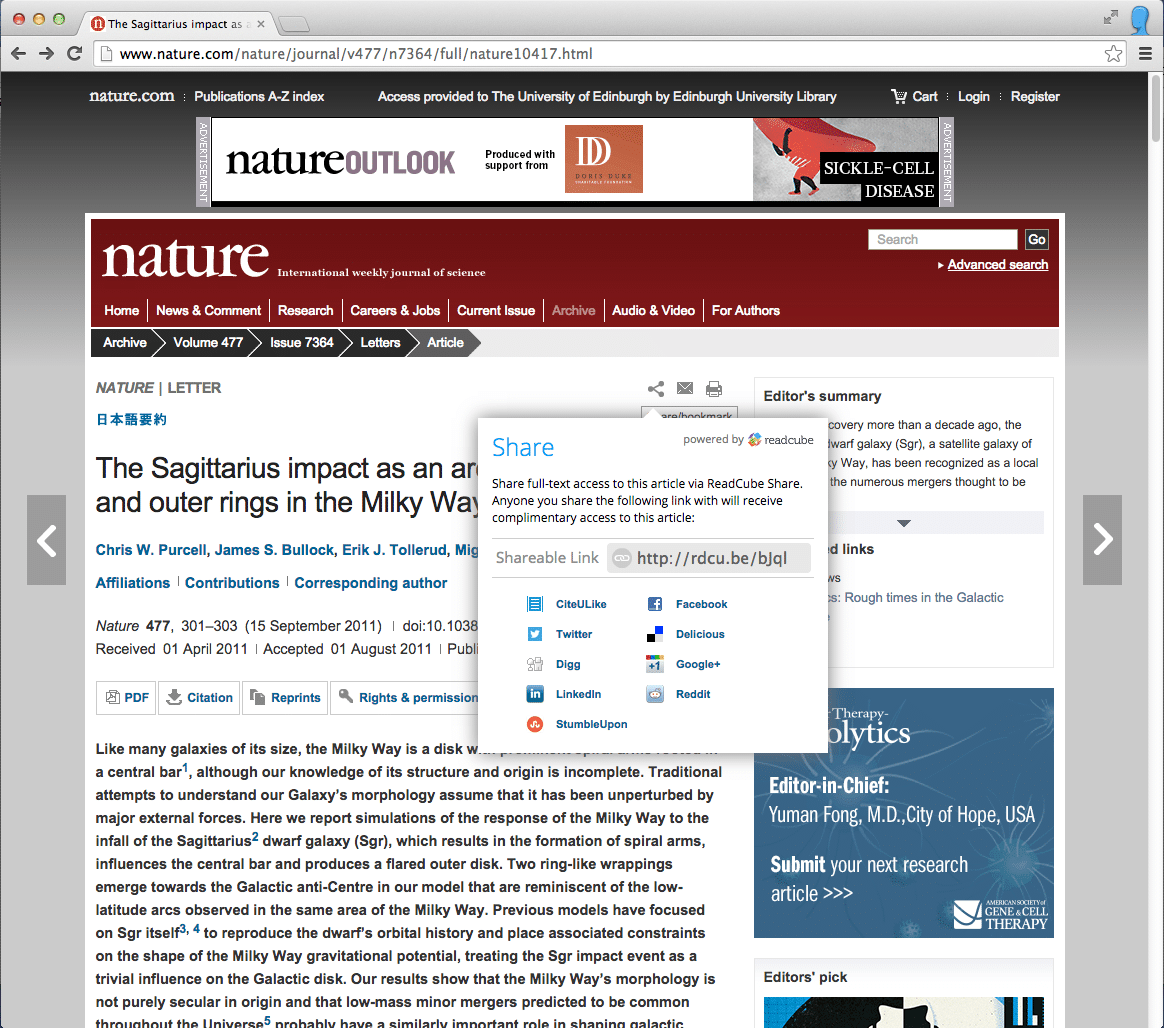Subscribe to our newsletter
The Unbearable Clunkiness of Sharing
This year marks the twentieth anniversary of my PhD in neurophysiology. Given the pace at which science progresses, this surely means that most of what is known about the brain has been discovered since I left that lab – possibly not by coincidence. It also means that I am, by some official definition, an old fart. So indulge me and allow a brief reminiscence.
When I were a lad – or at least, when I were int’ lab – reading the literature meant handling dead trees. Keeping up with the most relevant journals involved manually flipping through their pages. Retrieving a publication from the archive meant a visit to ‘the stacks’ – vast arrays of wooden shelves – and more often that not, a stepladder or two. Building a personal library involved hour after hour of pressing down huge tomes against the bright glass panel of a photocopier and inserting a stream of 10p coins. And doing any of these things at all first required a hike down the road to the library, and then back again to the lab.
Oh how times change. Little more than half a generation later we take completely for granted our ability to reach almost any journal article we choose – seated at our desks and in just a few clicks – and to search the corpus of published human knowledge in milliseconds. How clunky and quaint those old ways now seem. Why did we ever put up with them?
Largely because we didn’t know better. The web was less than five years old and this was the way things had been done for decades (centuries if you exclude the photocopier). The truth is that ridiculous clunkiness of the same kind still surrounds us, and we still don’t see it. One needs the right frame of mind to overcome our innate blindness to certain things that will become glaringly obvious to everyone in years to come.
Take article sharing. Even aside from the fact that it’s often technically illegal, it’s also a complete pain in the proverbial. First you have to download a copy of the article, usually as a PDF. Then you have to upload it somewhere, or perhaps attach it to an email. And finally, you have to draw your collaborators’ attention to it with a message or posting of some kind. If you have your own comments on the paper then these have to be shared separately from the paper itself, for example in an online comment or in the body of an email.
True, this has become a lot easier in the digital age than in the days of the photocopier. But that’s like saying photocopiers are an improvement on medieval scriptoria: we can and must do better. The act of sharing papers with collaborators is such an integral part of research – particularly as science becomes ever more global and interdisciplinary – we need to find ways that are quick, painless and indisputably legal.

That’s why our colleagues at ReadCube have teamed up with Nature to announce a new joint content-sharing initiative. This allows anyone with subscription access to 49 Nature-owned journals to create a shareable link right there and then on nature.com. They can then share this via email, social media and other channels; recipients get unlimited read-only access to the full text of the article. The creator of the link can also add and share their own highlights and annotations within the article itself. Oh yes, and they’ve also provided similar full-text access to any readers who follow links to nature.com from any one of over a hundred news websites and blogs.
In the spirit of science itself, this is something of an experiment. We don’t yet know exactly how people will use it (and won’t be surprised if a small number try to abuse it). We fully expect to have to fix things that don’t work as well as they should, and to add new features that our users request. But by making sharing available directly on journal websites we hope to make it quicker, easier and more functional for researchers. And in years to come, perhaps we will look back and wonder how we ever managed to do such things the old clunkier way.
